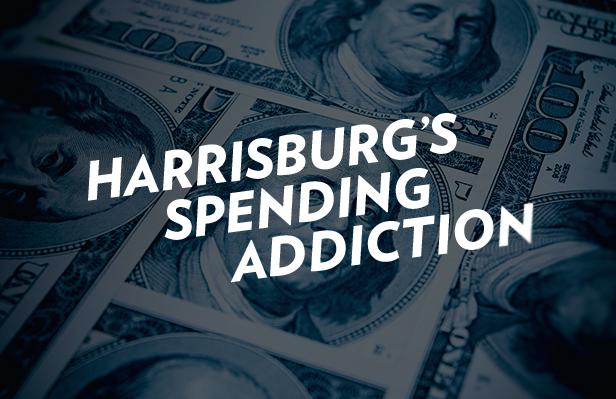Memo

Seven Threats to the 2017-18 Budget
The 2016-17 budget remains unbalanced, with anticipated gaming revenues dependent on yet-to-be-passed legislation. In addition, many of the revenue estimates are overly optimistic. Without serious efforts to reduce spending or reform major cost drivers, like public pensions and the sprawling human services system, taxpayers should expect a push for tax hikes in 2017.
- Falling sin-tax revenue. Tobacco taxes are historically an unstable revenue source, but they account for 75 percent of this year’s $650 million tax hike. The IFO predicts revenue from the current cigarette tax will fall by 3.6 percent in fiscal year 2017. New York, which has the highest cigarette taxes in the country, saw revenue drop by $400 million over the past four years.
Recently Philadelphia reported revenue collections of $58.8 million, 25 percent below estimates. Officials originally estimated the 2014 cigarette tax would generate $77.5 million, but later lowered the estimate to $59.5 million.
Expect statewide tobacco taxes to fall short, and continue to decline as smokers give up or travel to other states for cheaper cigarettes.
- Questionable wine-expansion revenue predictions. The estimated $150 million in revenue for 2016-17 assumes all 12 casinos seek permits to expand alcohol sales. In the last month, no casino has shown interest in purchasing a $1 million 24-hour liquor license. The estimate also assumes expanded hours, coupons, and flexible pricing (read: higher pricing) will boost revenues by $55 million.
Finally, the revenue estimate assumes more than half of expired licenses, auctioned off by the PLCB, will be in use within a year.
- Significant one-time revenues without spending reform. The budget includes about $460 million in one-time revenue, including money from new gaming licenses and a settlement with Volkswagen.
While legislators are right to look to surpluses in other funds before raising taxes- though this year they did both- one time shifts were needed only because lawmakers passed the largest spending increase in a decade. Consistently transferring funds without spending reforms will increase pressure for broad-based tax hikes.
- New gaming revenue doesn’t exist. The budget anticipates $100 million in estimated 2016-17 revenues from gambling expansion legislation that does not exist. Lawmakers intend to pass a gaming expansion bill in the fall, but there is no guarantee that they will.
This additional $100 million is needed, as lawmakers moved $95 million in payments to the Commonwealth Financing Authority off budget. Balancing the budget also depends on $50 million from a casino license in Philadelphia; however, this license has been tied up in court for two years with no end to litigation in sight.
- Overstated General Fund revenue estimates. Independent rating agency S&P assigned Pennsylvania bonds a negative outlook due to the commonwealth’s dubious revenue estimates. “We view the fiscal 2017 budget as structurally imbalanced and believe that many of the revenue assumptions could prove optimistic.”
- Medical malpractice insurance raid. A $200 million loan from the Pennsylvania Professional Liability Joint Underwriting Association is a temporary fix that will make it more difficult for the legislature to balance future budgets. Some question whether this type of borrowing is even ethical, since contributions to the fund come from doctors in need of liability insurance. Redirecting funds from a different insurance fund in the 1990s spurred a lawsuit that lawmakers lost.
- Funding Medicaid via worker’s comp. The state budget allows Medicaid to borrow $200 million from the Workmen’s Compensation Trust Fund. As the largest program in the Department of Human Services, Medicaid often spends beyond its budget. Allowing more borrowing could exacerbate a structural deficit. In 2004, lawmakers borrowed $100 million from the Underground Storage Tank Indemnification Fund, promising to pay it back by 2014. The state still owes the fund $32.5 million.
It's easy to overlook tax hikes that may not affect your daily life, but new taxes on smokers, vapors and Netflix users are just a prelude to the higher taxes in store for all Pennsylvanians unless legislators take action on long-term fiscal reforms.